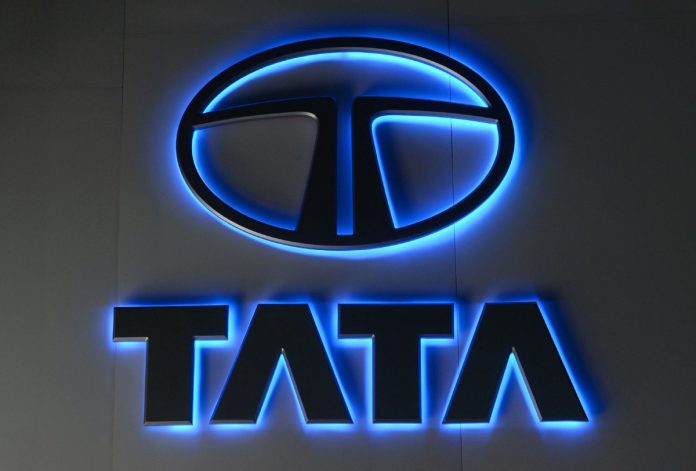This article is written by Madhu Ayachit, pursuing a Certificate Course in National Company Law Tribunal (NCLT) Litigation from LawSikho.
Table of Contents
Cause title
Tata Consultancy Services Ltd. v. Cyrus Investment Pvt. Ltd.
Introduction
The majority shareholders of a company have a superior position in the company as they are empowered to pass the special resolution of the companies. Therefore, the minority shareholders are generally at a disadvantage. However, the Companies Act, 2013 provides protection, though limited, to the minority shareholders. One of the protections granted to the minority shareholders is against oppression and mismanagement. Section 241 of the Companies Act, 2013 provides the minority shareholders protection against oppression and mismanagement. It enables the minority shareholders to file an application before the Tribunal if they feel that the conduct or the affairs of the company are being carried out in a manner that is prejudicial or oppressive to them or the interests of the public at large.
A similar issue was involved in the infamous case of Tata Consultancy and Cyrus investment in 2017. Both the companies have been in the limelight for quite a long time now ever since Mr. Cyrus Mistry was removed from the executive chairmanship of Tata Sons in 2016. Apart from that, issues regarding Shapoorji Pallonji Group, conversion from public to a private company, the status of Tata Sons as quasi-partnership of Tata Sons.
Brief facts of the case
Tata Consultancy Services (TCS) which is a unit of Tata Sons is a multinational information technology service. Mr. Ratan Tata who is one of the most well-known businessmen of India was the former chairman of Tata Sons and Tata Group. Mr. Cyrus Mistry is the director of Cyrus Investments Private Limited which is a non-government company and an investment advisor.
The selection panel of the Tata Group appointed Mr. Cyrus Mistry as the Chairman of Tata Sons Limited after Mr. Ratan Tata stepped down from his chairmanship. However, in 2016, he was removed from the chairmanship after a majority of the Board of Directors voted in this favour due to the loss of confidence. Moreover, after his removal, several attempts were made to remove him from all the group companies including Shapoorji Pallonji Group. Thereafter, in 2017, the Board of Directors of Tata Sons appointed Mr. N Chandrashekaran as the chairman, who was the Managing Director.
In view of the above, Mr. Cyrus Mistry filed an application under Sections 241 and 242 of the Companies Act before the National Company Law Tribunal, Mumbai (hereinafter referred to as “NCLT”) on the ground that there was the oppression of minority shareholders and operational mismanagement on part of Tata Sons Ltd. Thereafter the NCLT ruled in the favour of Mr. Cyrus Mistry.
Tata Sons Limited filed an appeal before the National Company Law Appellate Tribunal (hereinafter referred to as “NCLAT”) wherein the Tribunal ruled against Mr. Cyrus Mistry. Wherein the NCLAT overruled the judgment of the NCLT after giving conflicting views. The two judgments of both the Tribunals, i.e., the NCLT and NCLAT have given contrasting views with respect to each and every issue. Therefore, it is interesting to go through each and every issue for a better understanding of the judgments.
Issues involved in the case
Various issues and allegations were raised by Mr. Cyrus Mistry against Tata Sons Ltd. in relation to the following points:
- Tata Sons misused their powers under a few articles and Tata Trust exercised control over the Tata Sons board.
- Removal of Cyrus Mistry as an executive chairman from Tata Sons Limited.
- Transactions made with Siva and Sterling Group of Companies by Tata Groups.
- Fraudulent transaction worth Rs. 22 crores in Air Asia by Tata Trusts.
- The losses suffered in the Nano car project clearly depict the oppression of minority shareholder rights and mismanagement by the Tata Group.
- The acquisition of Corus at overpayment by Tata Trusts.
Statutory provisions involved
Section 241 of the Companies Act, 2013
Section 241 of the Act enables a member of the company to approach the NCLT if the member feels that the affairs of the company are being conducted in a manner that is prejudicial to the public interest or the interests of the company or the company is going through a material change and such change will be prejudicial to the interests of the members of the company.
Section 242 of the Companies Act, 2013
Section 242 of the Act deals with the powers of the Tribunal which it has in case an application has been made under Section 241 of the Act. This provision enlists the power of the Tribunal such as regulation of the affairs of the company, appointments, and removal, termination of agreements, setting aside actions taken by the management of the company, etc.
Contentions of TATA Consultancy Services
Tata Consultancy Services contended that there was no oppression on the part of Tata group and the decision of the Board to remove Mr. Cyrus Mistry from the Chairmanship of Tata Sons Limited. was “within its rights to do so.”
Contentions of Cyrus Investment PVT. LTD.
Mr. Cyrus Mistry contended that he was removed from the executive chairmanship of Tata Sons and thereafter from the directorship of other Tata companies by way of oppression by Tata Trusts, the promoters of the Tata Sons, having 68% of ownership.
The order passed by the NCLT
The NCLT, Mumbai Bench in 2018 dismissed all the charges which were made against Tata Sons on the ground that there was the oppression of minority shareholders on part of Tata Sons Ltd. and it had failed to protect and respect the interests of the minority shareholders. The Hon’ble Tribunal also held that the Board of Directors of Tata Sons had the right to remove Mr. Mistry from the chairmanship.
The order passed by the NCLAT
Aggrieved by the order of the NCLT, Mumbai Bench, Cyrus Investments Private Limited & Anr. appealed to the NCLAT wherein the NCLAT addressed the issue as to whether the affairs of the company have been or are being conducted in a manner ‘prejudicial’ or ‘oppressive’ to any member or members or to the public interest or the interests of the company.
The Hon’ble Tribunal overruled the judgment passed by the NCLT, Mumbai bench, and delivered its judgment in favour of Mr. Mistry. The NCLAT observed that Mr. Mistry was removed from the post of chairmanship illegally and the board of directors did not have a right to remove him on the grounds that such power can be exercised only in exceptional circumstances and in the interest of the company. Moreover, before exercising such power, reasons for removal should be recorded in writing and intimated to the respective shareholders whose rights will be affected. Therefore, the Hon’ble Tribunal ordered Tata Sons Ltd. to reinstate Mr. Mistry and held that the appointment of N Chandrasekaran as the chairman is illegal.
Comparative analysis of the orders passed by the NCLT and NCLAT
As mentioned above, it is pertinent to go through all the issues on which the NCLT and NCLAT gave contrasting views.
(i) Oppression of Mr. Cyrus Mistry
Section 241 of the Companies Act, 2013 comes into the picture when the affairs of a company are conducted prejudicially and are oppressive to the public interest, interests of the company, or its members.
The NCLT elucidated that the act of removal of an employee from the company does fall within the purview of Section 241. Since the company is incorporated for the benefit of its members and it is for them to appoint their Executive Chairman, the claim that they do not have any right to appoint a chairman, does not hold merit. Moreover, the NCLT also acknowledged the fact that the board of directors had lost confidence in Mr. Cyrus Mistry. Whereas the NCLAT observed that Mr. Cyrus Mistry was removed from his post without any discussions and records of the company did not show a lack of performance on his part. Therefore, the NCLAT ordered his reinstatement after four weeks of the date of its order.
(ii) Oppression of minority shareholders
Article 75 of the Articles of Association of Tata Sons enables it to ask any shareholder to sell his shares either to the existing shareholders or outsiders selected by the Board through special resolution. It was argued by Mr. Cyrus Mistry that this Article oppresses the minority shareholders as they are compelled to sell their shares.
The NCLT said that Article 75 which restricts the transferability of the shares was in vogue even before the applicants filed the application before the Tribunal and the applicants were very well aware of it. The Tribunal also observed that in order to prove oppression, alteration in the article of association needs to be done. However, it has not been done in the present case. Whereas the NCLAT acknowledged the consequences of Article 75 and therefore, ordered Tata Sons to not invoke this provision against the minority shareholders.
(iii) Conversion of public company into a private company
The issue related to the conversion of public companies into private companies was also raised before both the Tribunals. The NCLT observed that such a conversion of a public company into a private company does not fall under the ambit of Section 241 and Section 242. Whereas the NCLAT observed that in the present case, the conversion from public to a private company was done suddenly and in between the proceedings. Moreover, the correct procedure for the conversion was also not followed. Therefore, the NCLAT held that there was prejudice and oppression against the minority shareholders.
(iv) Quasi-partnership
The issue as to whether or not Tata Sons can be recognized as a quasi-partnership was raised before both the Tribunals. The NCLT invalidated the claim of the applicants that the company can be recognised as a quasi-partnership between Tata Group and Shapoorji Pallonji Group.
In spite of the fact that the NCLAT acknowledged this claim, they did not acknowledge the legitimate consequences arising from such partnership that can lead to oppression. Moreover, the NCLAT also ignored the principles established by the Hon’ble Supreme Court in various judgments on how to determine whether a company is a quasi-partnership.
(v) Mismanagement of TATA Sons
The NCLT did not pay attention to the allegations of prejudice towards Tata Sons Ltd. on the ground that they were majority shareholders and thus, cannot go against their own interests. Whereas the NCLAT opined that mismanagement was very much evident as Tata Sons incurred losses because of their prejudicial decisions and resolutions passed by the Board of Directors.
Further, the claim questioning the conduct of Mr. Ratan Tata as the director was held unreasonable and frivolous as the applicants could not establish or prove that he acted prejudicially to the interests of the company or the applicants.
Final verdict of the Supreme Court
Aggrieved by the order of the NCLAT, Tata Sons Ltd. appealed to the Hon’ble Supreme Court on the ground that the NCLAT undermined the corporate democracy of Tata Sons Ltd. The Hon’ble Supreme Court bench composed of Justices S A Bobde, V Ramasubraminain, and A S Bopanna decided the case recently in March 2021.
While setting aside the order of the NCLAT, the Hon’ble Supreme Court dismissed the charges of oppression and mismanagement against Tata Sons Ltd. and ruled against Mr. Cyrus Mistry. The Hon’ble Court acknowledged the corrupt conduct of Mr. Mistry and observed that he himself had invited the trouble as he was involved in the leaking of confidential data of the company to media in order to create sensation and therefore, his removal from the post of Chairmanship and directorship was justified.
The Hon’ble Court also made the following observations:
(i) Mere removal of a person from the post of Chairmanship shall not fall within the scope and subject matter of Section 241 if it is not prejudicial to the interests of the minority shareholders.
(ii) If the action is not prejudicial or oppressive to the interest of the company, its members, or the public at large, Tribunal cannot interfere with the removal of a person as a Chairman of a Company under Section 241 of the Companies Act, 2013.
(iii) Sections 241 and 242 of the Companies Act, 2013 do not expressly confer the power of reinstatement.
Conclusion
The case of Tata-Mistry is one of its kind as it was one of the most high-profile cases. It gave a clear and precise interpretation of Section 241 of the Companies Act, 2013. The conflicting opinions given by the NCLT and NCLAT created a lot of ambiguity as to the definition of Section 241 of the Companies Act, 2013 and the powers of the Tribunals with respect to oppression and management. However, the ambiguity was cleared by the Hon’ble Supreme Court related to the powers of the Tribunals. Despite the fact that the judgment was passed in the favour of Tata and Sons Limited, both the companies have suffered reputational damages as the allegations made against the companies were serious.
References
- https://www.mondaq.com/india/shareholders/1055032/tata-mistry-case-a-bittersweet-victory-for-the-tata-group
- https://www.legalserviceindia.com/legal/article-1803-analysis-of-tata-mistry-case-judgment-analysing-it-through-the-lens-of-established-principles-of-corporate-law.html
- https://taxguru.in/company-law/comparative-analysis-nclt-nclat-orders-tata-mistry-case.html
- https://www.livelaw.in/top-stories/supreme-court-tata-sons-appeal-nclat-order-to-reinstate-cyrus-mistry-as-chairman-171764
- http://www.lawstreetindia.com/sites/default/files/stories/docs/Tata-Mistry%20NCLT%20Order-%20Key%20Excerpts.pdf
- https://journals.sagepub.com/doi/pdf/10.1177/2277977918803250
Students of Lawsikho courses regularly produce writing assignments and work on practical exercises as a part of their coursework and develop themselves in real-life practical skills.
LawSikho has created a telegram group for exchanging legal knowledge, referrals, and various opportunities. You can click on this link and join:
 Serato DJ Crack 2025Serato DJ PRO Crack
Serato DJ Crack 2025Serato DJ PRO Crack










 Allow notifications
Allow notifications


